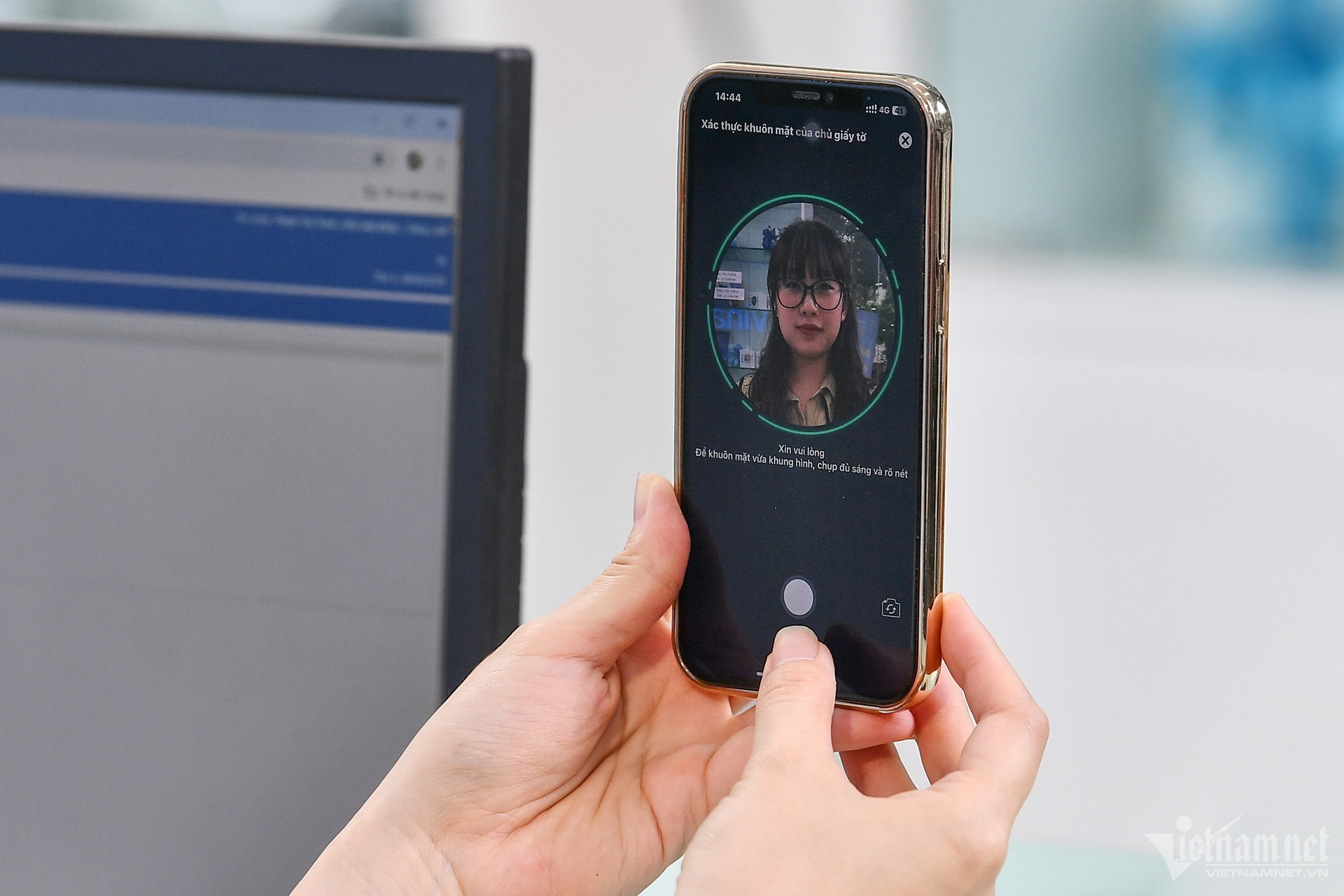
Under a newly released regulation, customers will have to have biometric authentication when making their first bank transactions with mobile banking. Facial authentication is also required when clients make online money transfer of over VND10 million, or VND20 million within one day.
However, many customers have reported that updating data on banking applications often fails, while others say they are not keen on technology, or their mobile phones are not compatible with banks’ apps.
Hoang Quyen, 33, from Cau Giay district, said she followed steps as guided by a commercial bank, photographed two sides of her chip-based identity card (ID) and sent the images to the bank’s system. However, she got stuck in the next step of scanning ID information. She asked for help from her husband, who only succeeded in scanning information after a lot of trials.
Quyen believes that people who are not good at technology will have to struggle to fulfill all the procedures for biometric authentication.
Some people complain they cannot scan their faces as requested, or the scanned photos are different from the ones on ID cards.
Le An, a VietNamNet reader, in an email to the editorial board, said the faces on ID cards may not coincide with the real faces at different times, so the scanning fails. Meanwhile, to make biometric registrations, many people have to buy other phones as older phones don’t have NFC chip readers.
Tinh Nguyen Van, another reader, complained that she tried 10 times and failed.
“Errors are always reported when scanning ID cards,” she said.
Cao Quoc Hoa said it always takes a lot of time to conduct facial authentication.
“The bank’s app cannot recognize my face after a lot of trials which takes 30-40 minutes. Maybe the photo on my ID card is bad which makes it different from my face in reality?” he said.
As for Thoa Nguyen, the problem is her smartphone. “I cannot make biometric registration with My Oppo Reno 3 because it doesn’t have the function of reading chips,” she said.
“I came directly to a bank branch and asked for help. But the bank officer could not do this and advised me to buy another phone,” she said, adding that she doesn’t want to buy another phone because of her limited budget.
Difficulties in data collection
Commercial banks say that it is difficult to collect data, especially from older people who don’t use smartphones, or who still don’t have chip-based ID cards. Problems have also arisen with people who have had cosmetic surgery.
A representative of VPBank said on Hanoi Radio and Television that it is difficult to collect data, because personal data at certain times may not coincide with the data on chip-based IC cards.
OCB said problems may arise if customers use mobile devices not supported with NFC to read chips on ID cards.
The biggest problem of the authentication process is sticking ID cards into chip readers on smartphones. Chip readers are placed in different positions on smartphone models. Many smartphone models don’t have NFC readers.
Officers of some commercial banks have admitted that errors mostly occur when using apps to scan information on ID card chips and customers cannot take the next steps of the authentication process.
Nguyen Tuyet Nhung from Kalapa, a firm specializing in biometric solutions, said on VTC News that people remain unsatisfied when doing eKYC (Electronic Know Your Customer) steps. People have to have smartphones that can read NFC chips integrated in ID cards, and they have to know how to put the IDs into smartphones for smartphone chip reading. The requirements are unfamiliar to the majority of users.
Software with authentication service must have superior performance and high processing speed. Also, the software must be easy to use, even for the elderly.
Duong Mai Anh, CEO of Vidiva, which owns Ting e-wallet, commented that users are often confused when determining the chip location on ID cards and phones.
“In addition to online biometric registrations, bank account owners can bring their ID cards to commercial banks to receive support for the first authentication. Meanwhile, this remains a difficulty for e-wallet owner because of their limited networks."
Hanh Nguyen